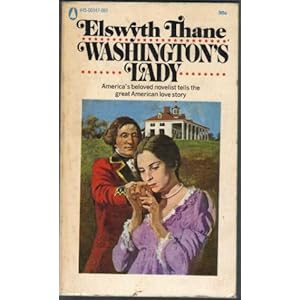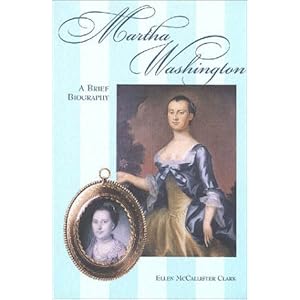A Being So Gentle: The Frontier Love Story of Rachel and Andrew Jackson by Patricia Brady was a breath of fresh air after the depressing saga of Louisa Adams. Sure, Rachel had her share of sorrows. When she was twelve her family braved an incredibly dangerous trip down a river facing Indian attacks, bitter cold winter, disease, and hunger to become among the first white settlers in what is now Tennessee. Then, as a teenager she married a young man who turned out to be angry, jealous, and unfaithful. Not having any legal rights to a divorce, she lived separate from him with her own family after trying to reconcile.

But then Andrew Jackson, a dashing, hot-headed lawyer came to the Tennessee Natchez
The love Andrew and Rachel shared was deep and life long. Reading
Rachel was unable to have children, however, they had various nephews and nieces they cared for at different times and three nephews in particular that they raised (two of which were named Andrew Jackson!). They also raised an Indian baby that Andrew had found lying in his dead mother’s arms after a battle he had fought against her tribe. Andrew had been an orphan himself and this baby’s plight tugged at his heart so he took the baby and sent him home for Rachel to raise.
Rachel Jackson was also very down to earth which I could relate to. So far the other first ladies were wealthy (or very in debt so they appeared wealthy!) and had experience with European courts and royal etiquette. Rachel and Andrew Jackson entertained just as much as the other presidential couples, yet without overwhelming debt or fancy etiquette to measure up to. In fact there was time when money was short so they actually downsized! If you were to visit the first Hermitage, a three-room log cabin, you might drive up to find Andrew Jackson rocking on his porch smoking his pipe while Rachel herself was sweeping with her apron on and her large key ring on her belt. If you stayed with them, you would sleep in the loft area of the home with whomever else was visiting or living with them. Yet the couple was praised for their warm hospitality and good food.

Rachel never got the chance to be First Lady. She died of a heart attack shortly after Andrew was elected president. After she drew her last breath, Andrew refused to accept the truth and stayed by her side all night long hoping she would wake up. He never truly recovered from her death and wore her miniature about his neck from then on.
On the one hand I would have liked to see what Washington Washington Washington









